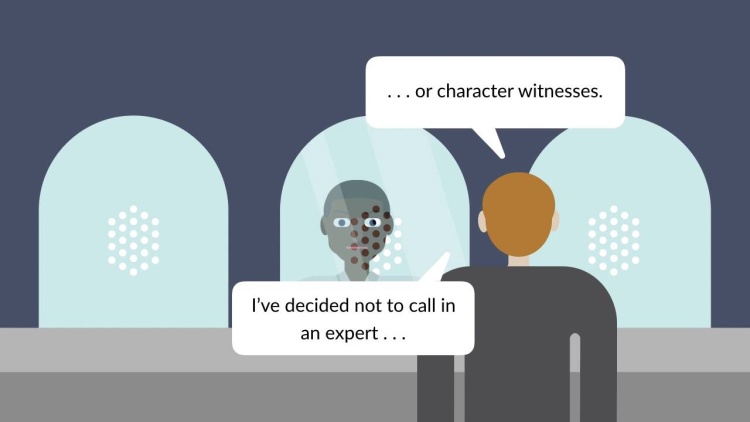Strickland v. Washington
United States Supreme Court
466 U.S. 668, 104 S. Ct. 2052, 80 L. Ed. 2D 674 (1984)
- Written by Sarah Venti, JD
Facts
Washington (defendant) went on a 10-day crime spree during which he committed three groups of violent crimes, including multiple murders, kidnapping, and theft. Washington claimed he had no significant criminal record until then. He eventually turned himself in to the police and gave a statement confessing to the third group of crimes, which included one murder. Washington was appointed an experienced criminal attorney. Against his lawyer’s advice, Washington later confessed to the first two murders. This caused Washington’s lawyer to feel a sense of hopelessness about his client’s case. Again ignoring his lawyer’s advice, Washington pleaded guilty to all the charges against him. Washington told the judge that when he committed the crimes he was under extreme stress because he was unable to support his family. Washington then rejected his lawyer’s advice that he request an advisory jury for his capital-sentencing hearing. The trial judge found several aggravating circumstances with respect to each of the three murders and found the mitigating factors presented by the defense unpersuasive. Specifically, he found that Washington was not suffering from extreme emotional disturbance. The trial judge sentenced Washington to death on each of the three murder counts and to prison for the other crimes. The state supreme court upheld the convictions and the sentences. Washington filed a petition for collateral relief claiming ineffective assistance of counsel at the sentencing proceeding. He cited six instances of misconduct: (1) the lawyer did not move for a continuance to prepare for the sentencing hearing, (2) the lawyer did not interview and present character witnesses, (3) the lawyer did not request a psychiatric report, (4) the lawyer did not seek a presentence-investigation report, (5) the lawyer failed to present meaningful arguments to the sentencing judge, and (6) the lawyer failed to examine the medical reports and cross-examine the prosecution’s medical experts. Washington’s lawyer testified that he wanted to rely on the plea colloquy to establish Washington’s emotional stress and his background. He also said that he did not request a presentence report because it would have established Washington’s criminal history to the court. Counsel also testified that his trial strategy was based in part on what he knew about the judge determining his client’s sentence. Finally, counsel believed there were mitigating circumstances that would keep the judge from imposing a capital sentence. The trial court did not grant a hearing and denied relief. Washington then filed a petition for a writ of habeas corpus. The federal district court agreed with the state trial court. The court concluded that while Washington’s lawyer had made mistakes, Washington had suffered no prejudice as a result. The court of appeals reversed and remanded the case.
Rule of Law
Issue
Holding and Reasoning (O’Connor, J.)
Concurrence/Dissent (Brennan, J.)
Dissent (Marshall, J.)
What to do next…
Here's why 904,000 law students have relied on our case briefs:
- Written by law professors and practitioners, not other law students. 47,100 briefs, keyed to 995 casebooks. Top-notch customer support.
- The right amount of information, includes the facts, issues, rule of law, holding and reasoning, and any concurrences and dissents.
- Access in your classes, works on your mobile and tablet. Massive library of related video lessons and high quality multiple-choice questions.
- Easy to use, uniform format for every case brief. Written in plain English, not in legalese. Our briefs summarize and simplify; they don’t just repeat the court’s language.





